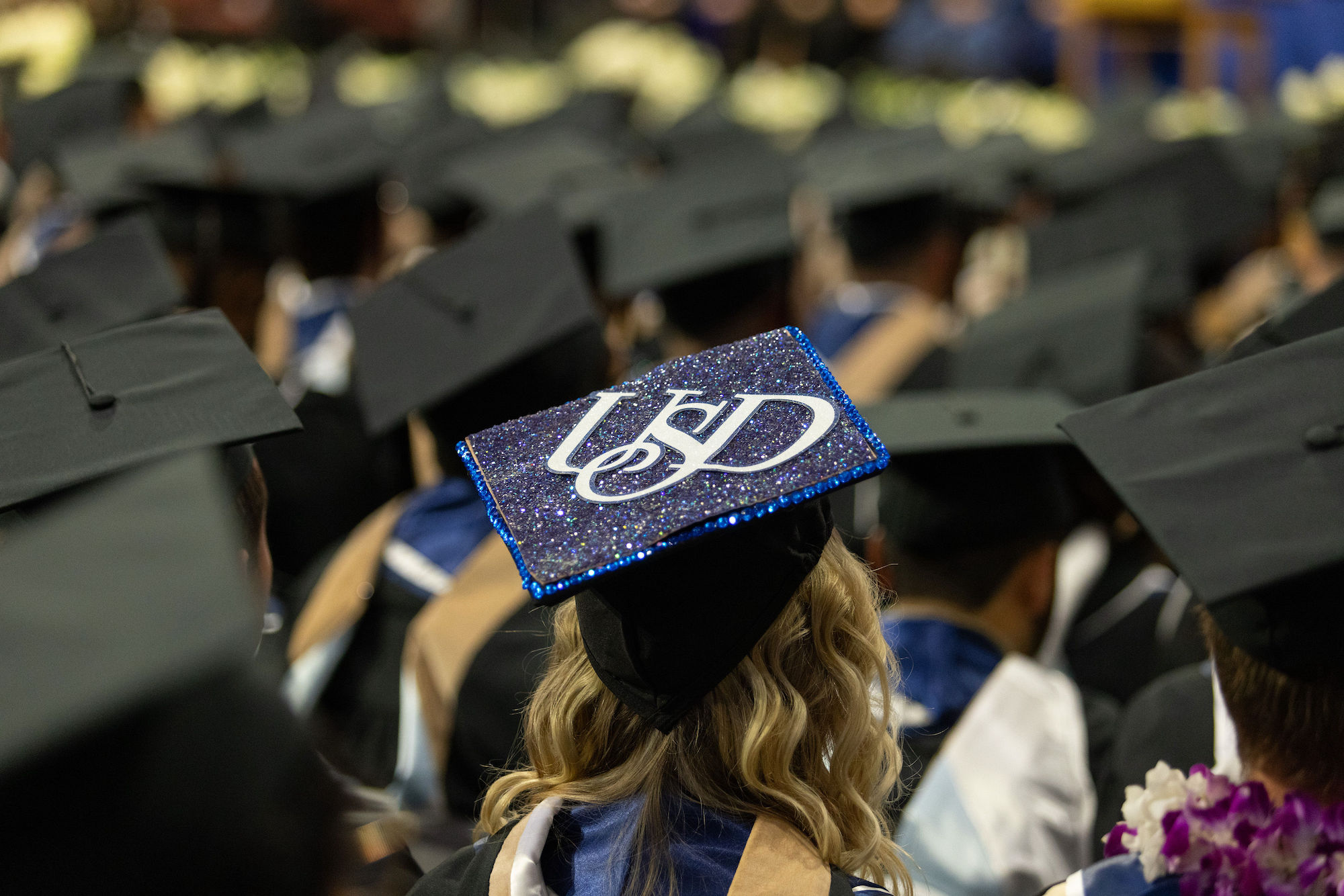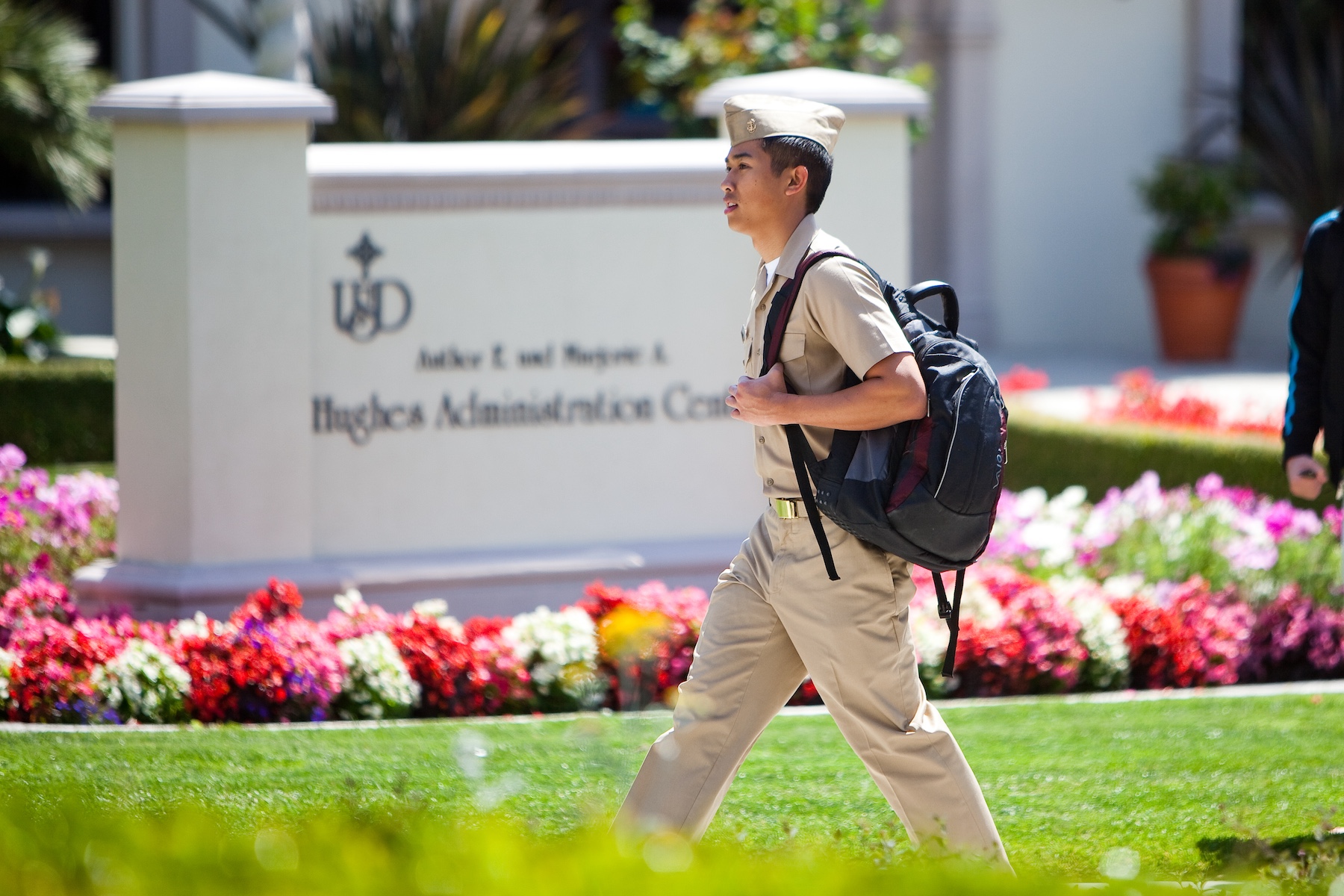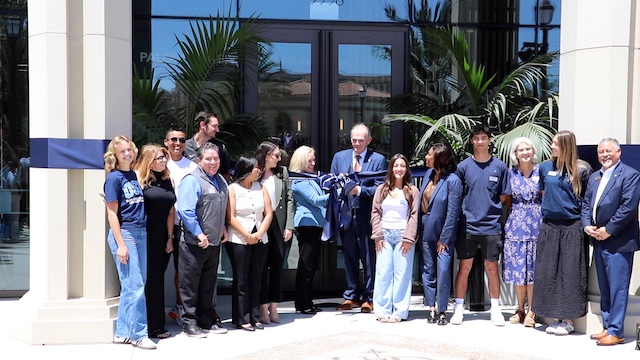What Fruit Flies Tell Us About Multitasking, Sex, and Sleep
SAN DIEGO: A research study by University of San Diego Assistant Professor of Psychological Sciences, Divya Sitaraman, was published in the July issue of Nature Communications.
Sitaraman’s study explores how organisms choose and prioritize behaviors in light of competing choices. While some behaviors can be performed at the same time like walking and drinking a coffee, there are several behaviors that cannot be performed at the same time since they use common resources. The nervous system has evolved mechanisms for enforcing exclusivity of incompatible behaviors, for example, when hungry, behaviors are directed toward acquisition and ingestion of food, and away from other behaviors. We understand that our nervous systems do this to ensure key behaviors are executed perfectly without interference but the precise circuit mechanisms are poorly understood.
Sitaraman explained, “Our study reveals that decision making and subsequent behavioral execution mechanisms are sex-specific and cannot be generalized in males and females. We have also identified novel genetic, neuronal and circuit mechanisms by which organisms prioritize and choose between sleep and social behaviors. Together, these studies have paved the way for more in-depth analysis of sex-specific decision making at the level of single genes, circuits to overt behaviors. The ability to perform multilevel analysis of complex behavioral regulation is a neuroscientists dream.
Specifically, the study explored how fruit flies choose between sex and sleep, which are two fundamental behaviors important for survival. The study found that male and female flies prioritize behaviors very differently. Male flies reduced their courtship behaviors in responses to sleep-deprivation, while female flies did not. Further, genes important in sex determination also seem to play a critical role in these behaviors. The interplay between sex and sleep circuitry at the neuronal level seems sex-specific and functions very differently in female flies. Taken together, the study uncovered role of genes in regulating sex-specific behaviors, interaction between circuits involved in different behaviors and sexual dimorphism in decision making.
The study also shows that multitasking can go haywire as circuits undergo modification as a result of one or other behavioral state making it difficult or even impossible to perform incompatible behaviors.
The study was conducted in collaboration with scientists at Yale University, Howard Hughes Medical Institute and Southeast University in China and uses an array of novel genetic, physiological and behavioral approaches.
In addition to the publication in Nature Communication, Dr. Sitaraman has been awarded a grant from the National Institutes of Health (NIH) for $366,409 to study sleep regulation by dopamine.
The goal of the NIH proposal (1R15GM125073-01) is to exploit fruit flies as an experimental system in which we can mechanistically dissect the neuronal underpinnings of the sleep control network and identify mechanisms by which conserved neuromodulators like dopamine regulate sleep. These studies will not only expose undergraduates to cutting edge neuroscience research but also further the long-term goal of exploiting the experimental tractability of the fly as a model for mammalian sleep and reveal new hypotheses and approaches in understanding and treating clinically significant problems of sleep disorders.
Watch Dr. Sitaraman discuss her research here.
About the University of San Diego
Strengthened by the Catholic intellectual tradition, we confront humanity’s challenges by fostering peace, working for justice and leading with love. With more than 8,000 students from 75 countries and 44 states, USD is among the Top 20 Best Private Schools for Making an Impact according to The Princeton Review. USD’s eight academic divisions include the College of Arts and Sciences, the Knauss School of Business, the Shiley-Marcos School of Engineering, the School of Law, the School of Leadership and Education Sciences, the Hahn School of Nursing and Health Science, the Joan B. Kroc School of Peace Studies, and the Division of Professional and Continuing Education. In 2021, USD was named a “Laudato Si’ University” by the Vatican with a seven-year commitment to address humanity’s urgent challenges by working together to take care of our common home.



